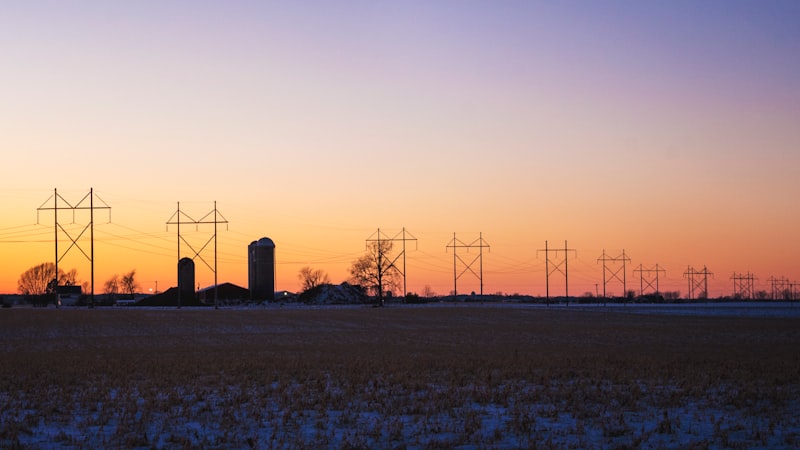Have you ever wondered which country has the most prisons? Prepare to be amazed as we explore this intriguing question. When it comes to incarceration rates, one country stands out from the rest: the United States.
The United States, often hailed as the land of the free, paradoxically holds the title for having the highest number of prisons in the world. With its vast correctional system, it houses a staggering number of inmates. The scale of this is truly mind-boggling.
Why does the United States have so many prisons? Several factors contribute to this phenomenon. Firstly, the country’s judicial system emphasizes punitive measures, leading to longer sentences and more people being incarcerated. Additionally, the war on drugs has played a significant role, resulting in a high number of drug-related offenses and subsequent incarcerations.
To put things into perspective, imagine a tapestry of bars and cells stretching across the nation. The United States has countless correctional facilities scattered throughout its states, each housing individuals who have been convicted of various crimes. It’s a complex web of confinement, a stark reminder of the challenges faced by society.
While the number of prisons can be seen as a reflection of a nation’s commitment to law and order, it also raises questions about the effectiveness of such a system. Are there alternative approaches that can address the root causes of crime and reduce recidivism rates?
As we contemplate the country with the most prisons, it serves as a reminder to reevaluate our justice systems and explore innovative solutions that prioritize rehabilitation and social reintegration. Only through these efforts can we hope to create safer communities while providing individuals with a chance for redemption.
The United States holds the dubious distinction of having the highest number of prisons globally. This fact highlights the need for comprehensive reforms that strike a balance between accountability and compassion. Let us strive for a future where the focus shifts from simply incarcerating individuals to rehabilitating them and fostering a society built on justice and understanding.
Behind Bars: Revealing the Country with the Highest Number of Prisons
Have you ever wondered which country has the highest number of prisons? Brace yourself, because I’m about to unveil the answer that will leave you astonished. Welcome to the world behind bars, where one country stands out from the rest in terms of its staggering prison count.
When it comes to incarceration rates, the United States takes the lead by a significant margin. Yes, you heard it right. The land of opportunities, freedom, and dreams also holds the distinction of having the highest number of prisons. It’s a shocking truth that sheds light on the complex dynamics of the American criminal justice system.
With over 2 million people behind bars, the United States imprisons more individuals than any other country in the world. This statistic is even more startling when you consider the country’s population is less than 5% of the global population. So why does the U.S. have such high incarceration rates?
One factor contributing to this phenomenon is the “war on drugs” that gained momentum in the 1970s. As law enforcement agencies cracked down on drug-related offenses, the number of individuals incarcerated for drug crimes skyrocketed. Additionally, mandatory sentencing laws and three-strikes policies further fueled the growth of the prison population.
The privatization of prisons is another aspect that has played a role in the proliferation of correctional facilities. Some argue that the profit-driven nature of private prisons incentivizes higher incarceration rates, as they rely on a steady stream of inmates to maintain their profitability.
While the United States strives for justice and public safety, the high number of prisons raises questions about the effectiveness and fairness of its criminal justice system. Critics argue that alternatives to incarceration, such as rehabilitation programs and community-based initiatives, should be explored to address the root causes of crime and reduce recidivism rates.
Unlocking the Truth: Discovering the Nation with the Greatest Incarceration Rate
Introduction:
Have you ever wondered which country holds the dubious title for having the highest incarceration rate in the world? Prepare to be amazed as we delve into the startling truth behind the nation that tops this unsettling list. In this article, we will explore the factors contributing to this phenomenon and shed light on the social implications it entails.
The Shocking Revelation:
When it comes to the nation with the highest incarceration rate, the United States takes the lead. Yes, you read that right. The land of the free also holds the record for the largest number of individuals behind bars. But what exactly has led to this staggering statistic?
Factors at Play:
Several factors contribute to the high incarceration rate in the United States. One key factor is the war on drugs, which has resulted in strict drug-related laws and harsh penalties. This approach has led to a significant portion of the population being incarcerated for non-violent drug offenses.

Another contributing factor is the “three-strikes” law implemented in some states, where individuals with three felony convictions face life imprisonment. While the aim was to deter repeat offenders, critics argue that this policy has led to disproportionate sentences and overcrowded prisons.
Social Implications:
The impact of this high incarceration rate extends beyond the prison walls. Families and communities suffer as loved ones are separated and support systems are disrupted. Moreover, the economic burden of maintaining such a vast prison population is substantial, straining public resources that could be allocated to education, healthcare, and other vital services.
Conclusion:
The United States shoulders the unfortunate distinction of having the highest incarceration rate globally. It’s crucial to understand the underlying factors driving this phenomenon and engage in conversations about criminal justice reform. By focusing on rehabilitation, addressing the root causes of crime, and exploring alternative sentencing options, society can work towards a more equitable and just future for all. The journey towards unlocking the truth behind this issue starts with awareness and a commitment to change.
Cell Count: Unveiling the Country with the Largest Prison Population Worldwide
Introduction:
Did you ever wonder which country holds the dubious title of having the largest prison population worldwide? Brace yourself for a shocking revelation as we delve into the cell count and unveil the nation behind this startling statistic. Prepare to have your notions challenged and explore the factors contributing to this staggering reality.
The United States, Holding the Unenviable Crown:
When it comes to prison populations, the United States emerges as the leader, wearing the crown of the country with the largest number of incarcerated individuals. In a country known for its pursuit of liberty, this fact may come as a surprise. The land of the free paradoxically holds more prisoners than any other nation on earth.
Factors Driving the High Incarceration Rates:
Several factors contribute to the bloated prison population in the United States. One key element is the stringent approach to criminal justice and law enforcement, with a focus on punishment rather than rehabilitation. This philosophy has led to a disproportionate number of individuals being imprisoned for non-violent offenses, resulting in an overcrowded correctional system.
Socioeconomic Disparities and Mass Incarceration:
Another catalyst for the high incarceration rates in the US is the presence of socioeconomic disparities. Poverty, lack of education, limited access to healthcare, and systemic racism intertwine to create a web that traps individuals in a cycle of crime and imprisonment. The result is a disproportionately high number of marginalized communities bearing the brunt of the prison system.
Reforming Criminal Justice:
Addressing this issue requires a comprehensive reform of the criminal justice system in the United States. Shifting the focus from punishment to rehabilitation can help break the cycle of recidivism and reduce overcrowding. Implementing alternative sentencing programs, investing in education and social services, and promoting job opportunities for ex-offenders are all crucial steps towards achieving meaningful change.
Conclusion:
As we uncover the reality behind the country with the largest prison population worldwide, it becomes evident that the United States faces significant challenges in its criminal justice system. Breaking free from the status quo and forging a path towards a more equitable and rehabilitative model is essential to alleviate the burden on both individuals and society as a whole.
Prison Pioneers: Exploring the Land that Leads in Penitentiaries

Step into a world where incarceration meets innovation. In this article, we delve into the lesser-known realm of penitentiaries, shining a spotlight on a country that has emerged as a true pioneer in this field. Let’s take a closer look at how this nation has revolutionized its approach to prisons and explore the impact it has had on both its inmates and society as a whole.
Imagine a land where correctional facilities are reimagined as centers for rehabilitation and reform rather than just punishment. This country has embraced a progressive mindset, recognizing that incarceration alone is not enough to address the complex issues surrounding crime. By fostering an environment that prioritizes education, vocational training, and psychological support, they have pioneered a new way forward.
Unlike traditional prisons that focus solely on containment, these institutions emphasize reducing recidivism rates by providing inmates with the tools they need to reintegrate into society successfully. Vocational programs empower individuals, equipping them with valuable skills that can lead to meaningful employment opportunities upon release. Education programs offer a chance for personal growth, expanding their horizons and instilling a sense of hope for a brighter future.
In this visionary nation, mental health is given the attention it deserves. Understanding that many inmates grapple with underlying psychological issues, comprehensive counseling services are made available, promoting healing and personal transformation. By addressing the root causes of criminal behavior, they strive to break the cycle of re-offending and create lasting change.
But what about the impact on society? Surely, such an approach must be met with skepticism. However, the results speak for themselves. Studies have shown that when inmates are provided with the right support and opportunities for rehabilitation, the chances of them returning to a life of crime significantly decrease. This not only benefits the individuals themselves but also contributes to safer communities and lower crime rates overall.
The pioneering efforts of this nation in the realm of penitentiaries serve as an inspiration to others. By redefining the purpose of incarceration and prioritizing rehabilitation, they have transformed the lives of countless individuals and set an example for nations around the world. It is a testament to the power of innovation and compassion working hand in hand to effect positive change.
The visionary nation we have explored today has emerged as a true leader in the field of penitentiaries. Through their progressive approach that focuses on rehabilitation, education, and mental health support, they have revolutionized the way prisons operate. By empowering inmates and fostering a sense of hope, they have paved the way for a brighter future both within and outside prison walls. Let us continue to learn from their example and strive for a society where second chances and redemption are truly valued.